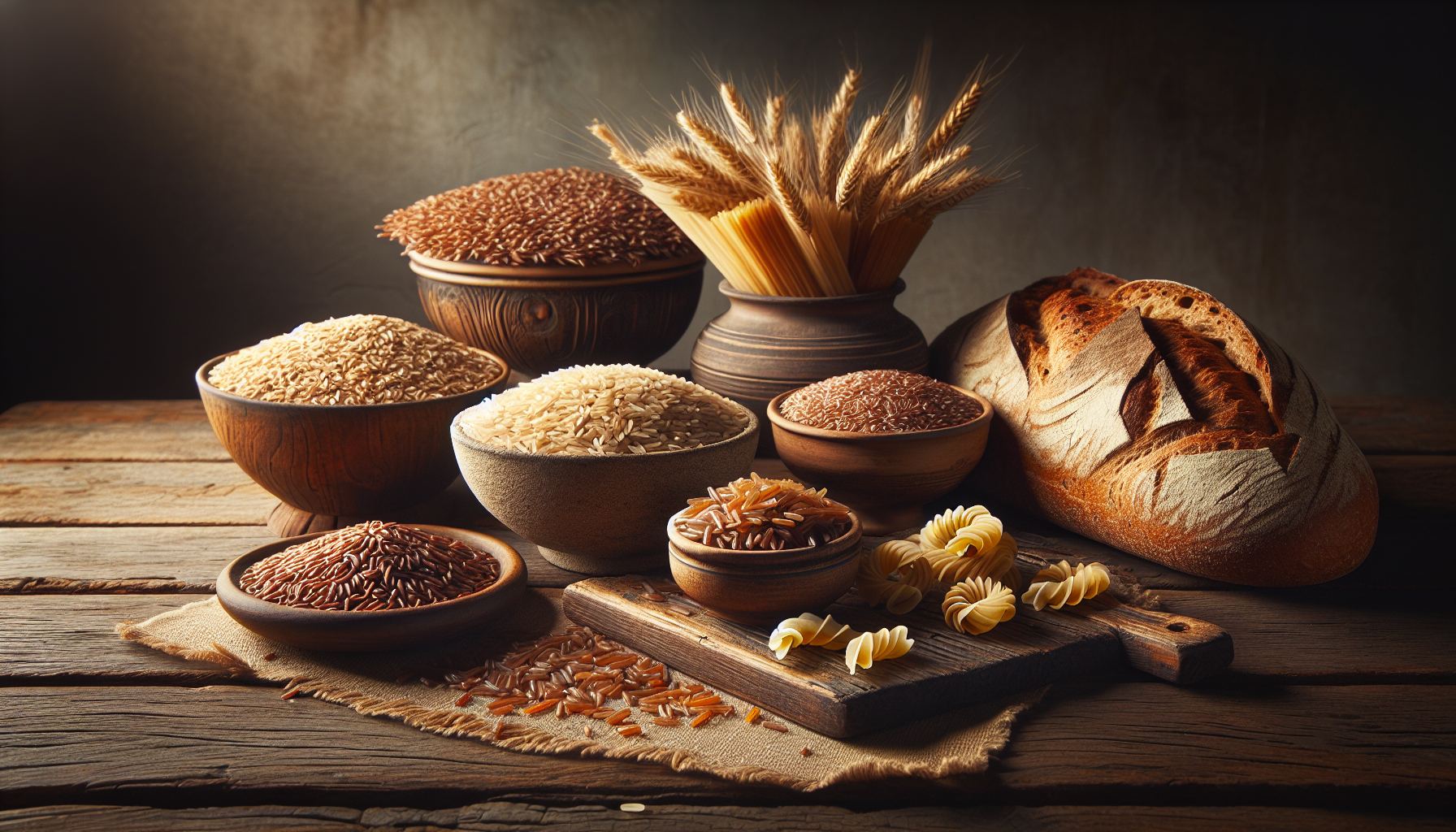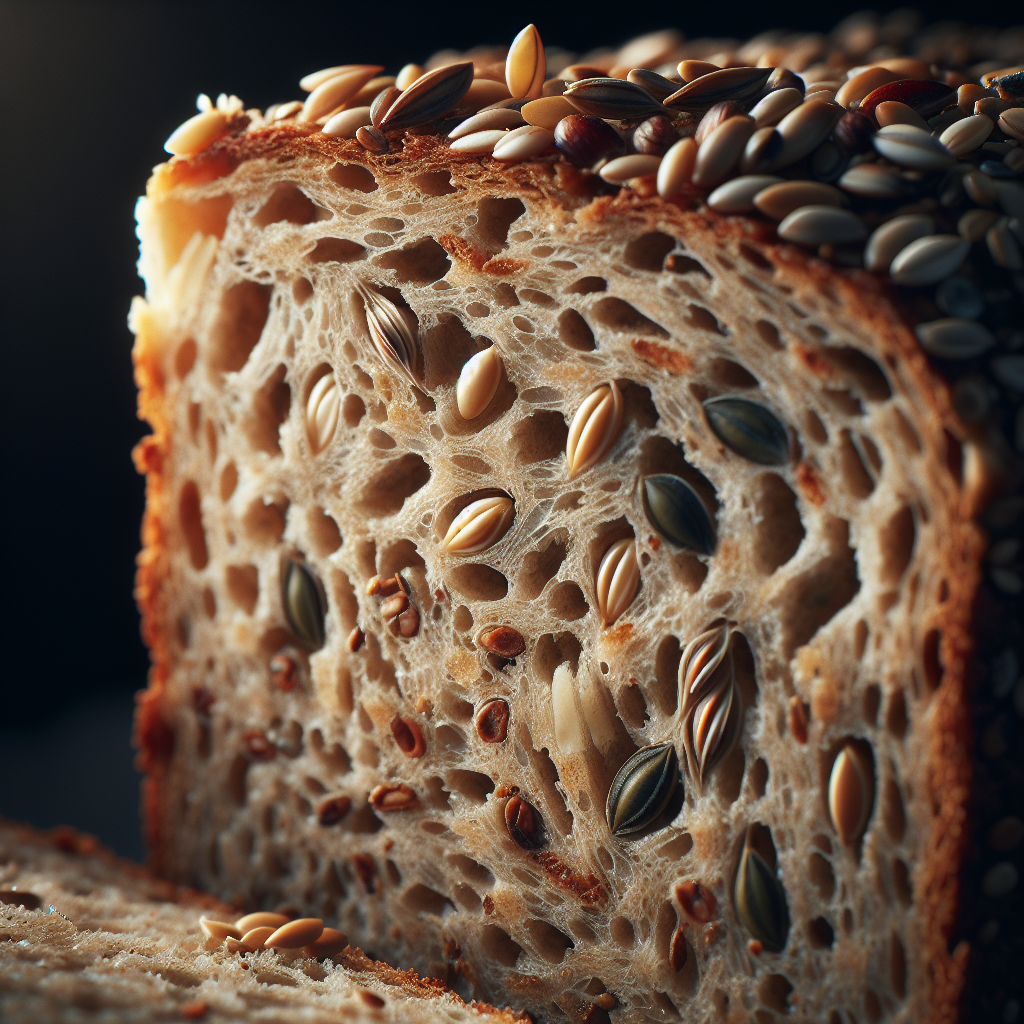Whole grains are a vital component of a nutritious diet, and their benefits extend far beyond the commonly cited improvement in heart health. Recent studies have begun to shed light on the significant impact that whole grains have on colonic health, highlighting their role in promoting a healthy digestive system, which is essential for overall well-being.
What are Whole Grains?
Whole grains are grains that have retained all parts of the seed (bran, germ, and endosperm) during processing, as opposed to refined grains, which have had one or more of their parts removed. Examples include whole wheat, brown rice, oats, barley, and quinoa. The intact nature of these grains means they are richer in dietary fiber, essential fatty acids, vitamins, minerals, and other nutrients that are often lost during the refining process.
The Colonic Benefits of Whole Grains
Enhancing Bowel Regularity
The high dietary fiber content in whole grains is a key factor in maintaining bowel regularity. Fiber aids in bulking up stools and promoting their smooth passage through the colon. This not only helps prevent constipation but also reduces the risk of developing hemorrhoids and small pouches in the colon known as diverticular disease. These benefits are also tied to digestive health, which is essential for overall bodily function.
Supporting Healthy Gut Microbiota
Whole grains contribute to a healthy gut microbiota – the complex community of microorganisms living in the digestive tract. Dietary fibers from whole grains act as prebiotics, feeding the beneficial bacteria in the gut. This encourages a balanced microbiome, which is crucial for synthesizing certain vitamins, immune function, and combating inflammation. For further insights, the article on balancing gut flora to combat antibiotic side effects provides a deeper understanding of the importance of a healthy gut microbiome.
Reducing the Risk of Colorectal Cancer
There is growing evidence to suggest that a diet rich in whole grains may reduce the risk of colorectal cancer. The fiber in whole grains can help bind and remove carcinogens from the gastrointestinal tract, while the presence of antioxidants, vitamins, and minerals may contribute to the prevention of cancer cell formation.
Impact on Inflammation and Immune Response
Inflammation in the colon is a marker of potential problems and can be an indicator of conditions like inflammatory bowel disease. Whole grains, with their nutrient-dense profiles, can help reduce inflammation. The article on the role of antioxidants in gut mucosal health highlights the importance of diet in managing inflammation in the digestive system.
Incorporating Whole Grains into Your Diet
Understanding Whole Grain Labels
When shopping for whole grains, it’s important to read labels carefully. Products labeled with "whole" before the grain, such as "whole wheat," are typically whole grain. However, phrases like "multi-grain" or "made with whole grains" may not indicate that the product is made entirely of whole grains. Looking for the Whole Grain Stamp, a packaging symbol indicating the product contains a significant amount of whole grains, can also be helpful.
Creative Ways to Add Whole Grains to Meals
There are many ways to incorporate whole grains into your diet:
- Swap out white rice for brown rice or quinoa.
- Start your day with oatmeal or a whole-grain cereal.
- Use whole grain breads for sandwiches.
- Experiment with different grains like bulgur, farro, or freekeh.
For inspiration on using whole grains to address specific health concerns, the article on tailoring nutrition to combat irritable bowel syndrome provides practical advice on dietary adjustments.
External Resources to Explore
Finding niche and specific resources can further help you understand the importance of whole grains in colonic health:
- Whole Grains Council: An organization that provides a wealth of information on different types of whole grains and their health benefits. Whole Grains Council’s Official Website
- American Society for Nutrition: Offers scientific perspectives on the nutritional value of whole grains. American Society for Nutrition’s Resources on Whole Grains
- International Foundation for Gastrointestinal Disorders: Shares insights into the role of diet in managing various gastrointestinal conditions. International Foundation for Gastrointestinal Disorders’ Dietary Guidelines
- Gut Microbiota for Health: An expert platform dedicated to expanding knowledge on the gut microbiota. Gut Microbiota for Health’s Insights
- United States Department of Agriculture (USDA): Provides guidelines for whole grain consumption and its health implications. USDA’s Dietary Guidelines
Challenges and Considerations
While the benefits of whole grains are clear, incorporating them into a diet can have its challenges. Some individuals may have difficulty digesting whole grains due to conditions such as celiac disease or non-celiac gluten sensitivity. In such cases, gluten-free whole grains like quinoa and brown rice can be good alternatives.
Additionally, sudden increases in fiber intake can cause gastrointestinal discomfort for some people. It’s generally advisable to increase fiber gradually and ensure adequate fluid intake to help the body adjust.
Conclusion
The relationship between whole grains and colonic health is an area of nutrition that offers significant benefits and promising potential for disease prevention and overall digestive well-being. By making whole grains a regular part of your diet, you can take a proactive step towards maintaining a healthy colon, which is a cornerstone of total body health. Whether you’re looking to improve bowel regularity, nourish your gut microbiota, reduce inflammation, or lower your risk of colorectal cancer, whole grains are a powerful ally in your nutritional arsenal.



